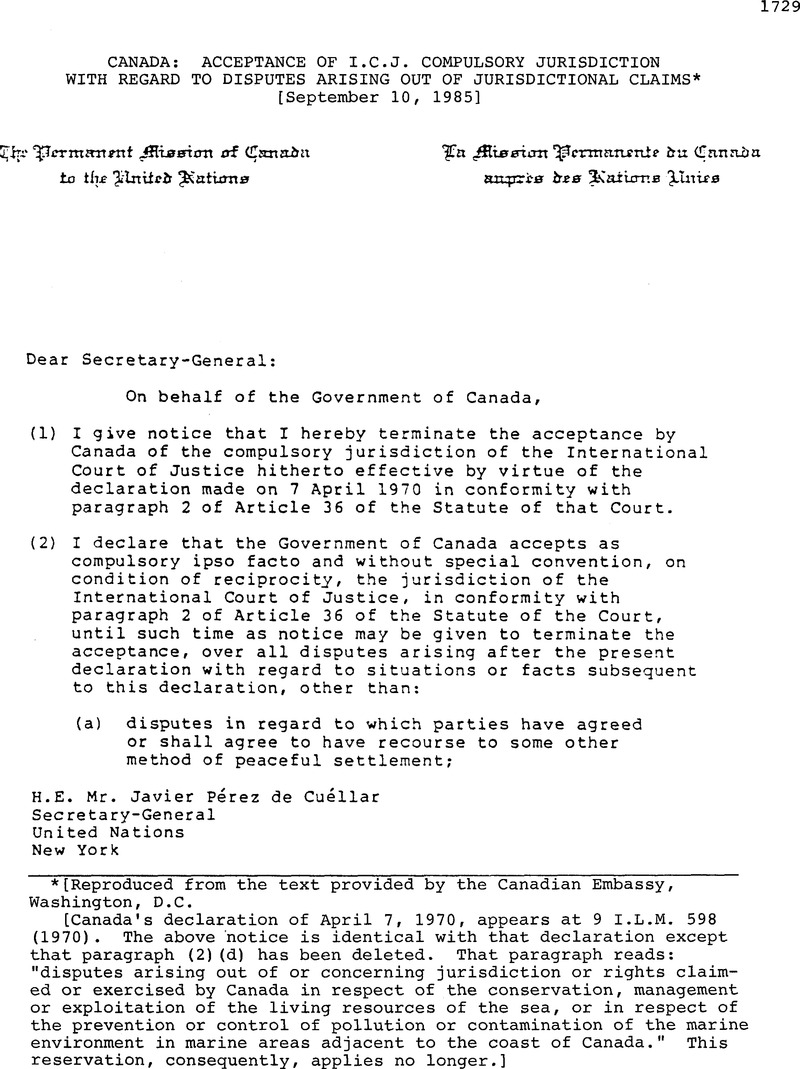No CrossRef data available.
Published online by Cambridge University Press: 18 May 2017

[Reproduced from the text provided by the Canadian Embassy, Washington, D.C. [Canada's declaration of April 7, 1970, appears at 9 I.L.M. 598 (1970). The above notice is identical with that declaration except that paragraph (2)(d) has been deleted. That paragraph reads:
“disputes arising out of or concerning jurisdiction or rights claimed or exercised by Canada in respect of the conservation, management or exploitation of the living resources of the sea, or in respect of the prevention or control of pollution or contamination of the marine environment in marine areas adjacent to the coast of Canada.” This reservation, consequently, applies no longer.]
* [Reproduced from the text provided by the Canadian Embassy, Washington, D.C. [Canada's declaration of April 7, 1970, appears at 9 I.L.M. 598 (1970). The above notice is identical with that declaration except that paragraph (2)(d) has been deleted. That paragraph reads:
“disputes arising out of or concerning jurisdiction or rights claimed or exercised by Canada in respect of the conservation, management or exploitation of the living resources of the sea, or in respect of the prevention or control of pollution or contamination of the marine environment in marine areas adjacent to the coast of Canada.” This reservation, consequently, applies no longer.]